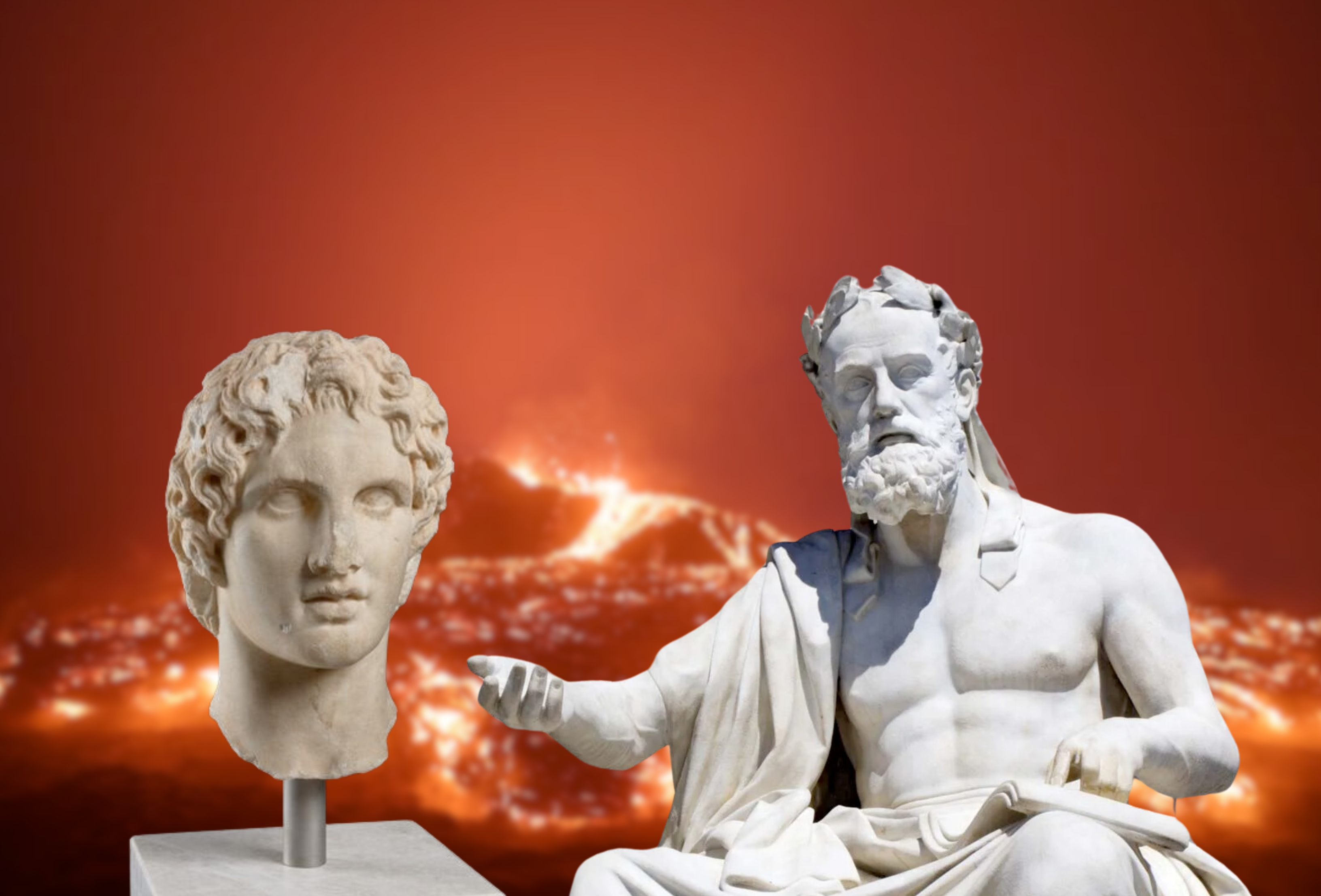crisis
10 Lessons That Inspired Alexander The Great, Part 7
April 2024

crisis
10 Lessons That Inspired Alexander The Great, Part 7
April 2024
Alexander The Great set into motion the events that would create the modern world. He studied and was inspired by Xenophon, a student-of-Socrates turned mercenary. Xenophon’s lessons on crisis leadership are timeless. In this series, we recount his epic, true story of war in the Anabasis and update this ancient wisdom to support you and your business the next time crisis hits.
STORY RECAP: Cyrus the Younger hires Greek mercenaries, The Ten Thousand, to kill his brother Artaxerxes II and seize the throne of the Persian Empire. Cyrus lies to The Ten Thousand about the purpose of their mission, excusing it as a law-keeping exercise against barbarians. When The Ten Thousand grow suspicious of the mission, they rebel. Their general Clearchus convinces them to trust Cyrus and continue with the mission. The Greeks are embroiled with in-fighting when Cyrus negotiates a shaky truce.
Artaxerxes and his army surprise Cyrus and the Greeks with an attack. The Greeks fend of the Persians. Stuck in tunnel vision, Cyrus attacks his brother and is killed. Xenophon pauses to honor and memorialize Cyrus’ good qualities as a leader.
The Greeks are stranded in the heart of the Persian Empire, surrounded by enemy forces. Fear and panic wash over the soldiers as they begin a retreat.
--
One of the more surreal experiences in life is sitting with a CEO and their executive team and being told they have no power to make any changes.
Circumstances are out of their control.
The employees will never change.
The business is too big to manage.
Yet this learned helplessness presents itself constantly. Despite being with THE TOP leaders.
Standing between a CEO and the ability to take action is self-responsibility. Accepting one’s circumstances and choosing to do something about them.
The same goes for each one of us.
Self-responsibility is the only thing standing between us and the future we desire.
We are far more powerful than we have been led to believe.
--
The Greeks continue their retreat through the Persian Empire.
The Persians follow closely but maintain a distance. They do not engage in combat.
One day, a Persian emissary approaches the Greeks. On behalf of Artaxerxes, Tissaphernes asks to negotiate a peace. He invites all the Greek leaders to a grand feast to negotiate and sign the truce.
Convinced, all the Greek generals and captains go to Tissaphernes’ quarters.
Once there, a signal was given.
The Persians, suddenly and simultaneously, began slaughtering the Greek leaders. They were all cut down or captured.
“The generals who were thus seized were taken up to the king and there decapitated.”
From a distance, the Greek soldiers watched on in terror as their entire leadership was massacred.
Stuck in the middle of the Persian Empire, hostile troops surrounding them, left with no leaders, the Greek army fell into deep despair. In total helplessness, the Greeks laid down to sleep for the night, lacking any motivation to do anything.
That night, Xenophon had a dream. In his dream, thunder and lightning crashed down about him. A bolt hit his father’s house, erupting into flames.
Xenophon woke in terror. Yet in calming himself down, he was struck: this was a message from Zeus. Get up and do something!
“Why am I lying here? The night advances; with the day, the enemy will be upon us. If we are to fall into the hands of the king, what is left us but to face the most horrible of sights, and to suffer the most fearful pains, and then to die, insulted, an ignominious death?”

Xenophon has an epiphany that will change the fate of the ten thousand men sleeping by his side.
“No one is preparing, none cares; but here we lie, as though it were time to rest and take our ease.
I too! What am I waiting for? A general to undertake the work? And from what city? Am I waiting till I am older myself and of riper age? Older I shall never be, if today I betray myself to my enemies.”
Xenophon wakes up the troops around him. What follows is one of the greatest speeches on leadership.
Xenophon begs the Greeks to take responsibility for the situation. To make proactive decisions and chart their own future:
“Let us not, in heaven's name, wait for others to come and challenge us to noble deeds; let us rather take the lead in stimulating the rest to valour.”
“Our business is plain: it is to do all we can to avoid getting into the power of the barbarians; rather, if we can, we will get them into our power.”
Rather than be beholden to the situation, to be at the mercy of fate… Xenophon flips the situation around. As the Roman Emperor Marcus Aurelius would say centuries later, “the obstacle becomes the way.” He empowers the Greeks to take their power back.
Xenophon proposes organizing the army by appointing new leaders. He calls for 100 new leaders to step forward and take their places. He himself, offers to lead or to follow, whatever is required for the good of all.
Next, Xenophon requests that the new leaders act as role models for the rest of the soldiers.
“The soldiers outside have their eyes fixed upon you; if they think that you are faint-hearted, they will turn cowards; but if you show them that you are making your own preparations to attack the enemy, and setting an example to the rest—follow you, be assured, they will: imitate you they will.”
Addressing the entire army, he reminds them of their homes in Greece. Urging them to get on with getting home.
Xenophon reminds the soldiers that the Persians would not attack them until they committed their treachery:
“You see, the enemy did not dare to bring war to bear upon us until they had first seized our generals; they felt that whilst our rulers were there, and we obeyed them, they were no match for us in war; but having got hold of them, they fully expected that the consequent confusion and anarchy would prove fatal to us.”
In his final rhetorical act, Xenophon faces the mercenaries and tells them:
Each man is responsible for his fate and the fate of his fellow man.
“So the enemy will be mightily deceived; for on this day they will behold ten thousand generals instead of one.”
With this, the soldiers all vote and democratically approve the plan. A rotating leadership hierarchy will lead the army from Babylon back to Greece.
--
What would the world look like if we all accepted Xenophon’s mandate?
If we each stepped up into our own inner leadership?
If we led by action and let our deeds speak volumes?
The key to flipping our circumstances is to take responsibility for ourselves. This means taking responsibility for our emotions, our desires, our thoughts, our biases.
By leading ourselves, we shine a light that helps others to lead.
Xenophon is not exerting control. He is not dominating.
Rather, he begins by shifting something within himself and then supporting others to also shift. He does not try to seize power, but rather to awaken the power within each and every soldier.
To wake up out of helplessness and despair. To believe in a brighter future. And to have the courage to make it so.
This is leadership.
And even 2,400 years later, Xenophon’s example arrives as a beacon of light to us all. That is the power of leading by example.

